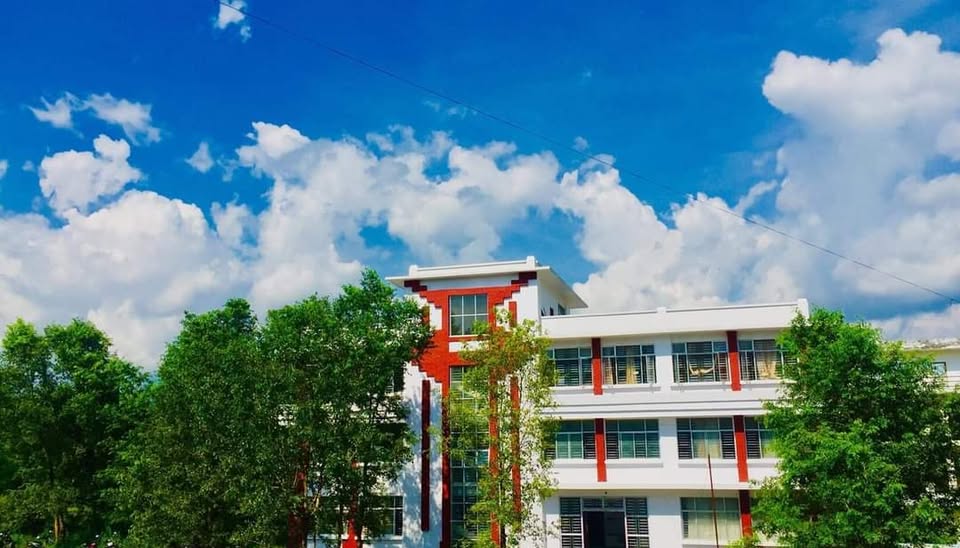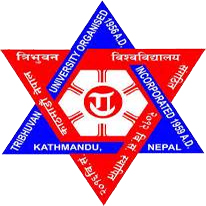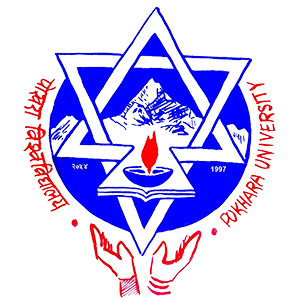Overview
The School of Development and Social Engineering (SDSE) Pokhara University, Dhungepatan, Pokhara, offers undergraduate and graduate programs in development studies, gender and development, English and communication, entrepreneurship, and law.
As a constituent school under the Faculty of Humanities and Social Sciences, SDSE focuses on development policy, population and gender studies, social research, and community engagement.
Founded to serve Nepal’s social and development needs, the school connects theory with field contexts. Academic work links population dynamics, gender equity, governance, environment, communication, and entrepreneurship with research and practice.
Quick Highlights
-
Institution: School of Development and Social Engineering (SDSE), Pokhara University
-
Location: Dhungepatan, Pokhara, Nepal
-
Affiliation & Status: Constituent school, Faculty of Humanities and Social Sciences, Pokhara University
-
Programs & Seats:
-
Bachelor in Development Studies (BDevS) — 39 seats
-
Bachelor of English and Communication Studies (BECS) — 39 seats
-
Bachelor of Entrepreneurship Development (BED) — 39 seats
-
Bachelor of Arts Bachelor of Laws (B.A.LL.B.) — 33 seats
-
Master in Population, Gender and Development (MPGD) — 30 seats
-
Master in Development Studies (MDEVS) — 30 seats
-
-
Notable Milestones: MPGD initiated in 2003 under a tripartite arrangement among UNFPA, Government of Nepal, and Pokhara University; BA in Development Studies launched in 2010
-
Academic Orientation: Interdisciplinary teaching and research with population and gender as cross-cutting themes
-
Primary Audiences: Prospective students, parents, teachers, education planners, policymakers, NGOs/INGOs, and researchers

Academic Programs Offered
SDSE provides programs that integrate classroom learning with research, field exposure, and analytical skills relevant to Nepal and global development contexts.
Bachelor in Development Studies (BDevS) — 39 Seats
-
Focus on development theory and practice, population studies, gender perspectives, governance, environment, and research methods.
-
Emphasis on data literacy, policy understanding, and community-based learning.
-
Launched to prepare mid-level development professionals who can work across government, NGOs/INGOs, and research units.
Bachelor of English and Communication Studies (BECS) — 39 Seats
-
Covers English language, literature, media studies, professional writing, and strategic communication.
-
Useful for careers in development communication, media, research support, and content roles in civil society and social enterprises.
Bachelor of Entrepreneurship Development (BED) — 39 Seats
-
Focus on small-business creation, social enterprise models, project planning, and local economic development.
-
Encourages applied projects linked to regional value chains and community needs.
Bachelor of Arts Bachelor of Laws (B.A.LL.B.) — 33 Seats
-
Integrates social sciences with legal studies, supporting future roles in public interest law, governance, and policy support.
-
Builds foundations in legal reasoning, constitutional law, and development-related legislation.
Master in Population, Gender and Development (MPGD) — 30 Seats
-
Initiated in 2003 with support from UNFPA and the Government of Nepal to strengthen capacity in teaching, training, and research.
-
Interlinks demographic analysis, gender frameworks, development policy, and research methods for leadership in the sector.
Master in Development Studies (MDEVS) — 30 Seats
-
Advanced training in development theory, policy analysis, program appraisal, and impact evaluation.
-
Suitable for professionals aiming for roles in policy units, development agencies, consulting, and academia.
Admission Process
-
Call for Applications: SDSE and Pokhara University publish admission notices for each intake.
-
Eligibility: As per Pokhara University regulations for the respective program and level. Applicants should review the official notice for academic prerequisites and any subject-specific criteria.
-
Selection Method: The university may use written tests, interviews, or merit-based evaluations as announced in the admission notice.
-
Application Steps:
-
Submit the online application within the deadline stated in the notice.
-
Pay the prescribed application fee through the specified payment channel.
-
Attend the test or interview if required.
-
Check the merit list and complete admission within the stated timeline.
-
-
Documents: Academic transcripts and certificates, identification, photographs, and any other documents requested in the notice.
Notes for Applicants
-
Monitor SDSE/Pokhara University official announcements for application windows, eligibility criteria, and selection procedures.
-
Keep academic records, identification, and required documents ready for timely submission.
-
For scholarship queries, check the relevant notice and verify deadlines and document lists.
Teaching Faculty and Learning Methodology
-
Faculty: SDSE engages academic staff with experience in development studies, gender and population studies, economics, sociology, anthropology, law, communication, and environmental studies.
-
Learning Approach:
-
Interdisciplinary coursework with seminars, tutorials, and guided reading.
-
Research methods training, data analysis tasks, and literature reviews.
-
Field exposure through community visits, organization-based assignments, and case analyses.
-
Emphasis on writing, presentation, and policy interpretation.
-
-
Assessment: Combination of internal evaluations, practical exercises, and end-term examinations according to Pokhara University rules.
Infrastructure and Learning Facilities
-
Campus Setting: Dhungepatan, Pokhara, with access to the city’s civic and development institutions.
-
Classrooms & Labs: Teaching spaces with support for presentations, group work, and research activities.
-
Library & E-Resources: Access to course texts, journals, and reference materials aligned with program needs.
-
IT Support: Computer facilities for data analysis, report preparation, and research software as required by the curriculum.
-
Student Services: Academic advising, exam support, and notices through official channels.
Student Life and Campus Experience
-
Academic Culture: Reading groups, research discussions, and student presentations encourage disciplined study habits.
-
Peer Learning: Group assignments and project work promote teamwork and clear communication.
-
City Linkages: Pokhara’s institutions, local governments, and organizations provide practical contexts for assignments and field tasks.
Extracurricular Activities (ECA)
-
Clubs & Forums: Student-led activities around debate, research, writing, and community outreach.
-
Workshops & Talks: Guest sessions with practitioners from government, NGOs/INGOs, and academia.
-
Community Engagement: Short field tasks, surveys, or awareness activities aligned with coursework.
Scholarships and Financial Support
-
Scholarship Channels: Scholarships and support follow Pokhara University policies and any program-specific provisions.
-
Categories: May include merit-based, need-based, and government or partner-supported schemes as announced in official notices.
-
Application: Applicants should check eligibility, submit required documents, and follow timelines stated by the university.
Achievements and Institutional Milestones
-
Program Establishment:
-
MPGD started in 2003 with a tripartite arrangement (UNFPA, Government of Nepal, and Pokhara University) to strengthen teaching, training, and research in development with population and gender as cross-cutting themes.
-
BA in Development Studies launched in 2010 to prepare mid-level development professionals.
-
-
Academic Scope: The school has steadily expanded offerings to include BECS, BED, B.A.LL.B., and MDEVS.
-
Graduate Outcomes: Alumni contribute across development organizations, public institutions, research units, and higher study pathways in Nepal and abroad.
Governance and Quality Assurance
-
University Oversight: The Planning and Program Division (PPD) under the Office of the Vice-Chancellor monitors constituent and affiliated colleges.
-
Functions of PPD:
-
Supervision, evaluation, and monitoring of programs and operations.
-
Record-keeping of academic programs and infrastructure data.
-
Recommendations on affiliations and additional programs to university authorities.
-
-
Quality Processes: SDSE adheres to university policies, academic council decisions, and applicable national guidelines for higher education.
Why Choose This Institution?
-
Constituent Status: Direct academic and administrative linkage with Pokhara University’s Faculty of Humanities and Social Sciences.
-
Interdisciplinary Strength: Programs connect development practice with population studies, gender analysis, law, communication, and entrepreneurship.
-
Policy and Field Orientation: Curricula encourage research, data use, and community exposure that reflect Nepal’s development priorities.
-
Program Breadth: Pathways from bachelor’s to master’s level support academic growth and professional goals.
-
Location Advantage: Dhungepatan, Pokhara, offers access to local governments, civil society groups, and regional institutions for field tasks and internships.
-
Transparent Information: Seats and program lists are clearly stated for planning and application.
Conclusion
SDSE at Pokhara University serves students who seek structured learning in development studies, population and gender, communication, entrepreneurship, and law. With constituent status, clear program pathways, and an emphasis on research and field contexts, the school supports evidence-based learning and practical skills relevant to Nepal and global development work.
Prospective applicants and stakeholders can rely on official notices for current admission dates, selection processes, and scholarship provisions, and use this profile as a starting point for academic planning.
Address
Pokhara Metropolitan City-30, Khudi, Dhungepatan, Kaski, Nepal
Telephone: +977-61-504038
Email: director.sdse@pu.edu.np
website: https://pu.edu.np/schools/sdse













